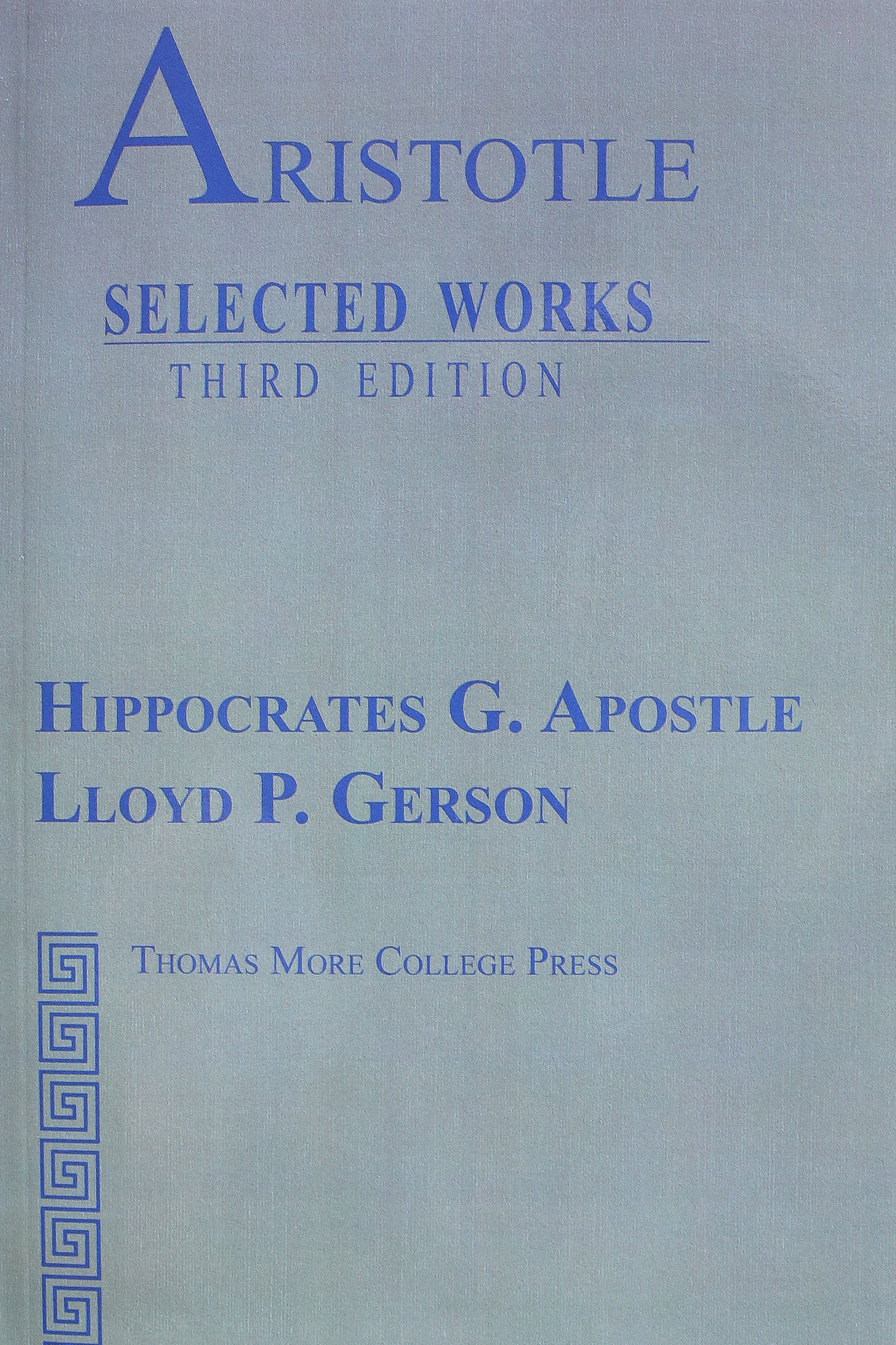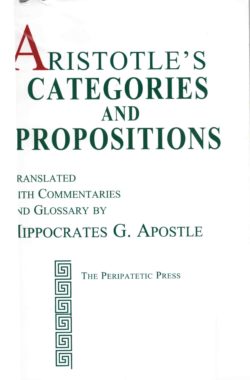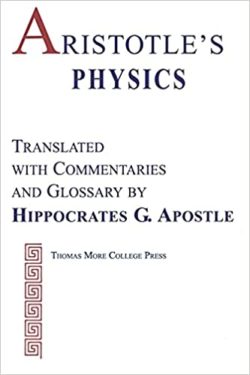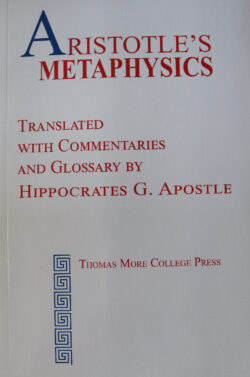Aristotle’s own works are the best introduction to his thought. A serious study of that thought, both comprehensively and in detail, can best be achieved by reading his works in the original Greek. Such study can best reveal his contribution to the understanding of philosophical truths and methods which have become part of our western civilization. But if knowledge of Greek is wanting and a general introduction is desired, the next best source is a scientific and accurate translation. The reason for this is that Aristotle’s works are written scientifically, and unscientific translations distort that thought and mislead the reader. Instances of this fact will be given in the Introduction. The aim of this book is to serve as a general introduction, whether or not one wishes to continue a serious study of Aristotle.
Within the limits of space there are problems of selection and the manner of presentation. One may include only a few works in their entirety, or just parts of many works, or one may take some intermediate position. There are advantages and disadvantages regardless of the choice, for there is a wide variety of interest, preparation, and maturity among the readers. Some are interested in the natural sciences, others in the social sciences, others in the logical works, others in the fine arts, and so on. If only a few works in their entirety are included, the other works will not be available to those who are interested in them. On the other hand, if only parts are included, the unity of a subject as a whole will not be apparent and hence Aristotle’s method of treating a subject as a whole will suffer. Again, the young and inexperienced learn better by induction and by starting with what is less abstract, while those with greater maturity would rather start with the more abstract and with demonstrations; and in view of this fact, the selection of subjects and manner of presentation proper to each of these two groups should be made by the instructor.
Perhaps a general introduction to Aristotle should be like a general education given in most of our liberal arts colleges, in which a student gets a general view of many subjects but also majors in a specific field of his interest as a whole. Accordingly, we are including many works (seventeen in all), of which three are in their entirety, most of the rest are more or less half complete, and the remaining are represented by a few chapters. We are including what we consider to be the most important parts of the works which are not given completely, but the unity of some of these is described in the Introduction, in which Aristotle’s theory of the sciences in general is considered.
We have tried to maintain a terminology which is consistent, adequate, familiar, and clear. Key philosophical terms and terms which are proper and important to each of the subjects considered appear in the Glossary, and many of them are defined or described or made known in some other way. Terms in italics with initial capital letters signify principles posited by philosophers other than Aristotle. For example, the One and the Dyad for Plato are the two principles from which all the other things are generated. Water for Thales is the material principle from which all other material things are made, and Intelligence for Anaxagoras is the cause of order and of goodness in things. Terms in italics but without initial capital letters have meanings which differ somewhat from the same terms without italics but are related to them, and the meanings of such pairs are given in the Glossary. Such are the pairs “substance” and “substance,” “chance” and “chance,” and “knowledge” and “knowledge.” Occasionally, expressions in italics are used for emphasis. Expressions appearing in brackets are added for the sake of the reader but are not translations from the Greek.
In the margins of the translations we have inserted the pages and lines of the Bekker text, for this is the standard pagination. The various works of Aristotle along with the Bekker pages containing each of them are listed at the beginning of References and Notes, right after the text. Students who wish to acquire the thought of Aristotle accurately should make full use of the Glossary, otherwise they may be faced with what appear to be inconsistencies or falsities, which lead to unfair criticism.
In this second edition, a few minor changes have been made, especially in the Politics and the Poetics.
We are grateful to Professor Daniel W. Graham, who assisted us in making the selection of the various topics; to Professor Gerald V. Lalonde and to Joel F. Wilcox, for clarifying certain points in the Poetics, and to Professors Elizabeth A. Dobbs, Morris Parslow, and the late John M. Crossett, who aided us extensively in the translation of the Poetics; and to Grinnell College and Hamline University, for help and encouragement in this work.
H. G. Apostle,
Grinnell College and Hamline University L. P. Gerson,
St. Michael’s College, University of Toronto



